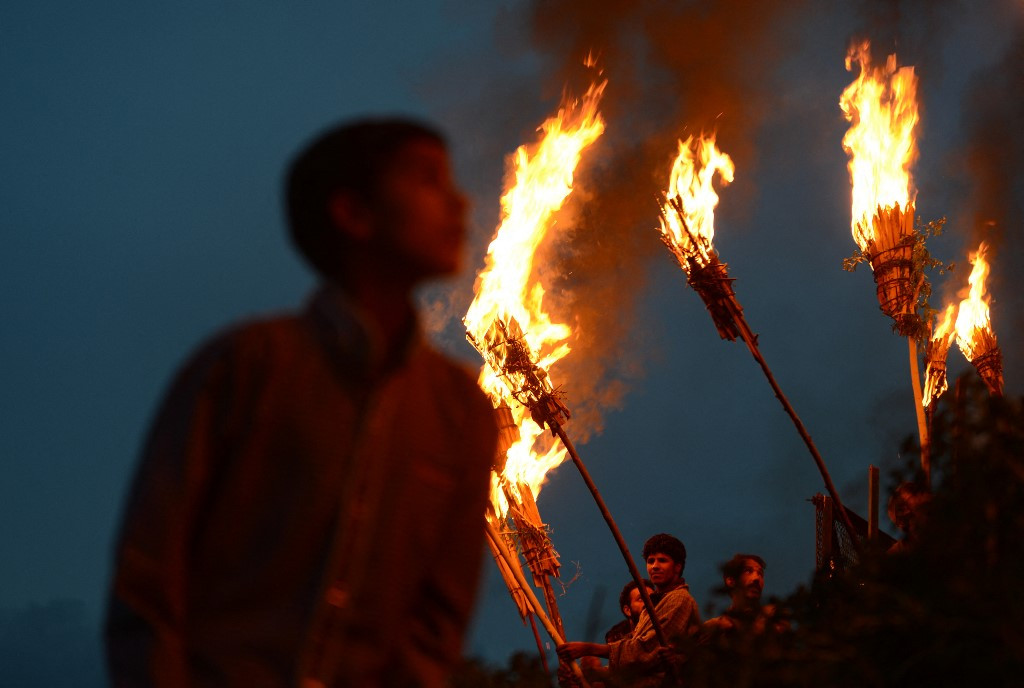Popular Reads
Top Results
Can't find what you're looking for?
View all search resultsPopular Reads
Top Results
Can't find what you're looking for?
View all search resultsFlames of honour for Muslim saint in Kashmir
Muslim villagers climbed a hill in Indian-administered Kashmir to celebrate a 15th-century Sufi saint and mark the beginning of the paddy-sowing season.
Change text size
Gift Premium Articles
to Anyone
H
undreds of Muslim villagers climbed a hill in Indian-administered Kashmir to celebrate a 15th-century Sufi saint with flaming torches and mark the beginning of the paddy-sowing season.
The "zool" festival sees men, women and children climb around two kilometres to a cave shrine in Aishmuqam village dedicated to Zain-ud-Din Wali, where they light wooden torches known as zools in his honour.
The torches traditionally use paddy grass dried from the previous year, while villagers who cannot climb the hill for age or illness light candles at home instead.
It was held for the first time in three years after a gap caused by the coronavirus pandemic, although numbers attending were reduced due to Ramadan, the ongoing Muslim holy month of fasting.
Legend has it that the saint, a prince from a Hindu warrior caste originally named Zia Singh, repeatedly fell ill when he was a young boy until his mother brought him to Kashmir's patron Sufi saint Sheikh Noordin Reshi after seeing the mystic in her dream.
When the prince recovered his mother gave the boy into his service.
The prince later embraced Islam while meditating in the cave on the mystic's orders and was renamed Zain-ud-Din Wali.
Little historical evidence remains for the story.
According to another legend, atop the hill the prince fought and vanquished a powerful demon who would devour a villager each day -- freeing the people from his curse, which had prevented farmers from going to the fields.
In another version, the festival marks the day villagers believe the prince entered the cave to meditate.
"This festival marks the new year for us because this is when we start our sowing season," said villager Muzaffar Ahmad at the ceremony Friday.
"We offer prayers to the saint here and our prayers do come true. Everyone is welcome to celebrate the festival with us."











